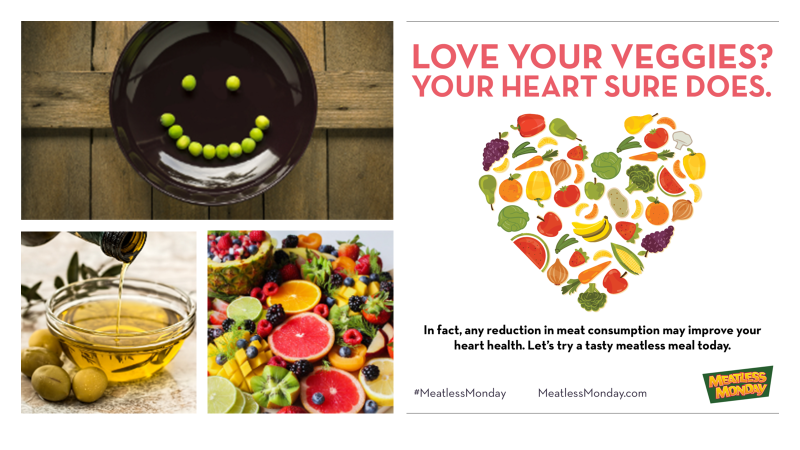Love Your Veggies? Your Heart Sure Does
Heart disease is a term that covers an array of health affecting the cardiovascular system such as coronary artery disease, heart rhythm problems (arrhythmias), and congenital heart defects.
According to the CDC’s Heart Disease Facts:
- Heart disease is the leading cause of death for men, women, and people of most racial and ethnic groups in the United States.
- One person dies every 34 seconds in the United States from cardiovascular disease.
- About 697,000 people in the United States died from heart disease in 2020—that’s 1 in every 5 deaths.
- Heart disease cost the United States about $229 billion annually from 2017 to 2018. This includes the cost of healthcare services, medicines, and lost productivity due to death.
Several health conditions, your lifestyle, age and family history, can increase your risk for heart disease. These are called risk factors. About half of all Americans (47%) have at least 1 of 3 key risk factors for heart disease: high blood pressure, high cholesterol, and smoking. The importance of talking to your doctor about your health history, vital health measurements and numbers such as blood pressure, cholesterol levels, heart rate, Body Mass Index (BMI) and waist circumference can not be overstated.
Some risk factors for heart disease cannot be controlled, such as your age or family history. But you can take steps to lower your risk by changing the factors you can control. For example, you can manage two of these risk factors — high blood pressure and high cholesterol —by making a few simple adjustments to your daily diet without missing out on flavor.
In honor of American Heart Month, Meatless Monday put together a list of tips to help you eat your way to a reduced risk of heart disease.
- Eat more fruits and vegetables: Fruits and vegetables contain the nutrients your body needs to function properly and prevent disease. Many fruits and vegetables, regardless of how they’re prepared (sans the deep fryer), are low in calories and contain vitamins, minerals, and fiber that help prevent heart disease.
- Focus on the Right Fats: The American Heart Association stresses the importance of limiting the consumption of fats and oils. Reduce your intake of saturated fats from animal products, trans fats, and hydrogenated vegetable oils, and focus more on healthy fats like olive oil, canola oil, and flaxseed oil.
- Go with Whole Grains: Whole grains provide the body with fiber and other nutrients that regulate blood pressure and promote heart health. Improve your diet by swapping white rice, bread, and pasta for brown rice and whole-wheat varieties of your favorite carbohydrates.
- Maintain a Healthy Weight: Excess weight has been found to raise the risk of developing heart disease. Reaching a healthy weight doesn’t require an extreme diet but rather a commitment to weekly activity and an eating plan rooted in fruits, vegetables, legumes, and other minimally processed foods.
- Limit Consumption of Red and Processed Meats: Processed meats contain high amounts of additives, chemicals, and sodium. Consider consuming these foods, which include deli meats, hot dogs, sausages, and bacon, in moderation.
- Think Mediterranean: Studies show that a Mediterranean-style diet which includes a balanced proportion of fruits, vegetables, legumes, healthy oils, and monosaturated and polyunsaturated fats, reduces incidences of major cardiovascular disease.
- Avoid To Much Sugar and Processed Carbohydrates: Foods of largely minimum nutritional value, like sugar-sweetened carbonated soft drinks, white breads, pastas, and other heavily processed carbohydrates, are major sources of excess calories and can lead to unhealthy weight gain and insulin resistance.
- Control Portion Size: Moderation is key to any healthy diet. Reducing serving sizes grants you the flexibility to eat a wider variety of foods you enjoy.
Check out the Meatless Monday heart-health guide for more information about the relationship between diet and heart disease.
Remember to harness the power of checking in to enhance the success of your wellness plan.
Use the Monday Campaigns: Weekly Check-Ins
Mindful awareness, accountability, goal setting and tracking progress are evidence-based techniques that enhance the success of a wellness plan. Each week, the Move It Monday! Campaign participants are invited to use the weekly check- Ins (Weekly Check In February 6th) to help you:
- Remain motivated;
- Reflect on your progress;
- Consider how you will work with your Push Pal to get the most effective results from your wellness experiences; and
- Recommit to your weekly goals.
Turn intentions into actions.

Submitted by:
Dahlia Henry-Tett, HR-Chief Wellness Officer, DHTett@nvcc.edu
